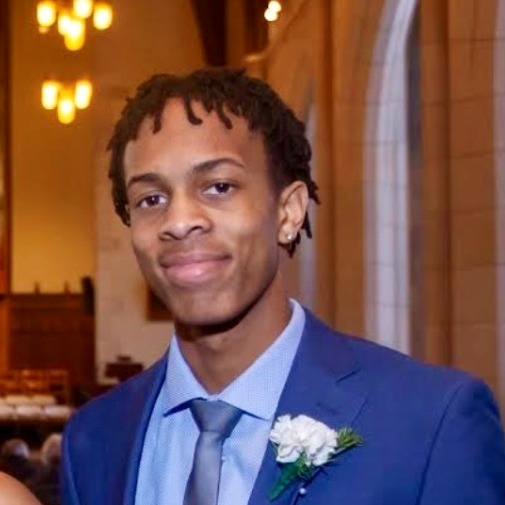
Shameek Hargrave hails from the great state of New Jersey where he is studying computer science and pursuing an engineering degree at Princeton University. He is a close friend and colleague with Brandon Henry ’24, an economics major at the Maxwell School of Citizenship and Public Affairs at Syracuse University who is part of the LaunchPad’s student team. Together, they are working to leverage their strategic, technical, and entrepreneurial skills for venture development.
Their goal is to create a software platform to enable college students to monetize services they could offer within the college ecosystem. They feel that the target market of college students is especially interesting because it offers an opportunity for a double-sided market. And between them, they hope to bring the idea to both Syracuse University and Princeton.
At his core, Shameek wants to build things that connect the gap between a textbook and an application. He is fascinated by the intersection of computing and consciousness, and finds reverse engineering, taking hardware apart, and reading intellectually rewarding. Outside of school, Shameek enjoys reading, basketball, and building things. Philosophy and political theory are also keen interests and he reflect that maybe in another life, he would have entered politics.
Shameek is not only ambitious and confident but also personable as well as open-minded because he has a wide range of experiences. Between boarding school and his hometown of East Orange, he has had a good mix of the melting pot of American culture.
He considers curiosity as his superpower because his passion for constant growth plays a role in how he conducts himself toward personal relationships and his studies.
Possessing an interdisciplinary mindset towards issues allows for a more rounded response to a problem. He sees entrepreneurship as a mindset being embodied by changing the world through innovation that has wide reach and capability. Building products that will augment the human experience are one of the reasons he wants to keep innovating in tech spaces. He finds artificial intelligence concerning computing power and the analysis of neurons in the brain especially interesting because it begins with understanding the human mind and incorporating other aspects of human experience.
He feels that in our study of the brain and its function, we cannot create a feasible representation of neural pathways and how synapses connect; the gap in our understanding of ourselves makes it almost uncharted territory, and yet it defines our reality.
Another computing issue he finds interesting is the polynomial vs nonpolynomial problems which in computing is the idea that some problems can be solved in a period. Shameek considers novel solutions to nonpolynomial problems in a discernible amount of time as pivotal to advancement into technology.
Shameek was born into a culture of entrepreneurs, people to guide you in the path. Along the way, Shameek says the one thing that will always stay with him is having gratitude. Living in the moment and appreciating the infinitesimal ways of what could transpire within a moment is key. Life is fleeting, everything is temporary which requires you to let things go. Failure is a cog in the wheel, so the only step is to learn.
One of Shameek’s most meaningful experiences was building a nonprofit organization known as Escape Vape. To incentivize kids to stop vaping, an application would monitor usage levels and set goals to decrease vaping.
Along the way, he and his team are realizing it is about understanding the right questions to ask which bring the most value to a pursuit. Finding someone who can give their time holds a special place in his heart which is why mentors play a long-term role in a startup’s success or failure. Collaborative communities are important because they allow people to produce a new idea. Collaboration is a critical part of development. Better holistic and well-rounded perspective is the product of diverse thinkers which can result in accelerated growth.
Shameek’s formula for success includes:
- Identify a need
- Validate it
- Do the research and be willing to identify a target market
- Don’t manufacture a need from anything
From Shameek’s personal experience in building a team, he has learned that is key to find people who are good at things you are not. Identifying shortcomings is crucial because having people fill in the gaps you are deficient in makes for a more well-rounded perspective across the board.
In terms of capability, identifying the skillset you need for a team number becomes more vital as you look into your network. More critical to developing a relationship with the people you are looking to add to your team
Shameek defines innovation as making an idea better through constantly refining and assess the solution